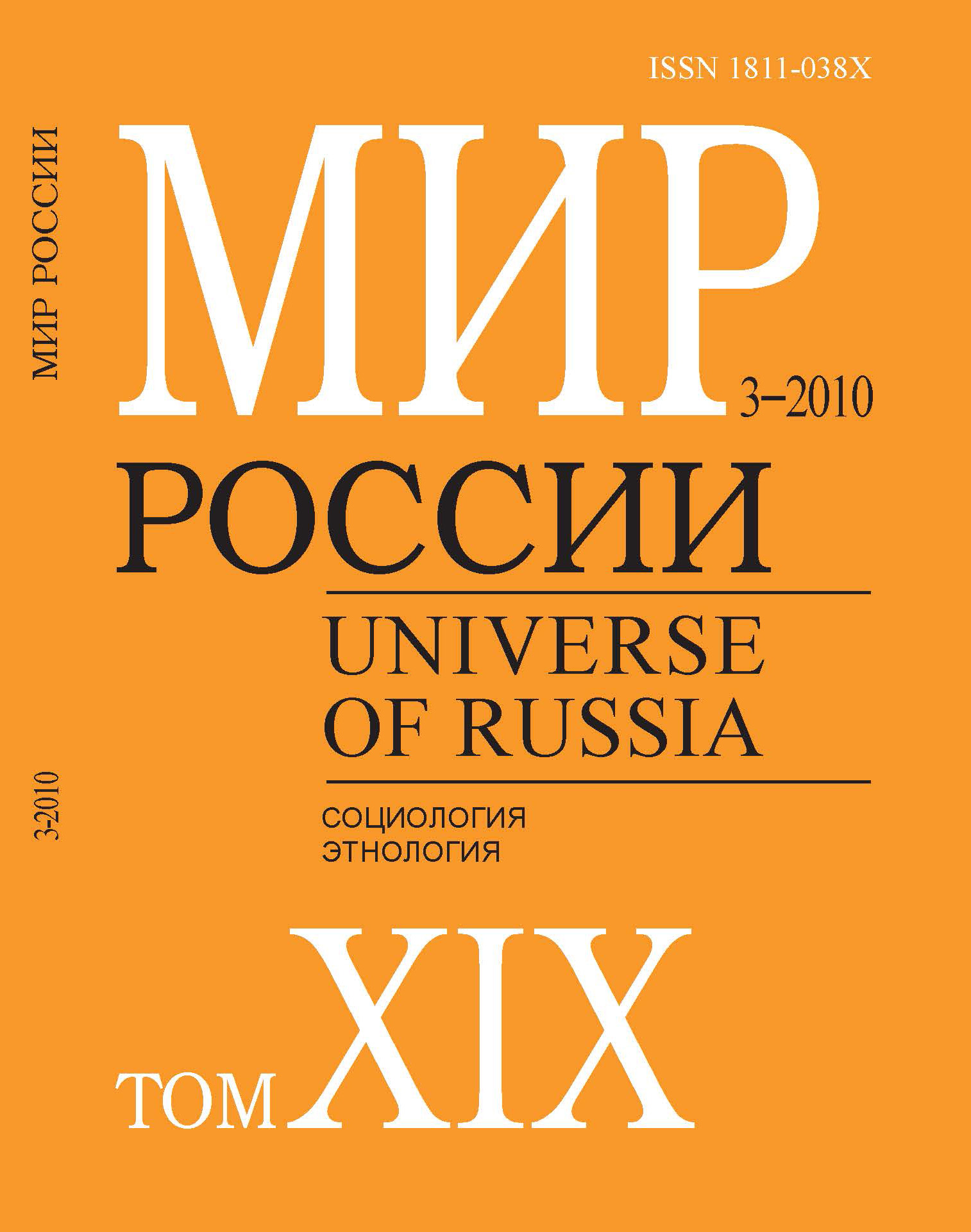Socio-Economic Differentiation of the Population: a Comparative Analysis of Russia and Europe
Abstract
Gordey Yastrebov — Lecturer, Chair for Economic Methodology and History, National Research University “Higher School of Economics”. Address: 3, B. Trekhsvyatitel’skii Ln., Moscow, 123022, Russian Federation. E-mail: gordey.yastrebov@gmail.com
It has been a rather long sustained tradition in comparative studies of social stratification to rely on categories and concepts introduced by Western sociologists and which are appropriate for developed and modernizing countries. This article attempts to establish whether such universalistic approaches to stratification are actually sufficient for explaining real inequalities between countries developing along different paths (as is becoming more or less obvious in the case of post-socialist development).
In the earlier collaborative study with professor O. Shkaratan, we provided some theoretical and empirical justifications in favor of a particular character of social and economic differentiation in contemporary Russia. By looking at the process of structuration and the reproduction of homogenous social groups, we have established that they are more likely to resemble estates (originating from power/authority ranks) rather than classes (based on differences in the market situation). A possible explanation for this is that Russia has not given up its statist tradition in social and economic development, and that it has further shifted away from developing a Western type of capitalism. However, to claim so, we had to provide further credibility for this argument by looking at these findings from comparative perspective, i.e. we had to establish whether similar hierarchies can be observed in the neighboring (geographically, as well as historically) post-socialist countries, and whether they are less likely to dominate among the Western developed countries.
Using empirical data from the European Social Survey (Round 3, 2006) I show that there is a far stronger degree of matching between individual occupation, education and income in better developed European countries than is observed among the post-socialist states. To emphasize this finding, I also look at the differences in patterns of intergenerational mobility, according to which post-socialist societies are far less mobile and ‘meritocratic’ than their Western counterparts. The main theoretical argument behind this, I suggest, is the incompatibility of modern ‘capitalistic’ institutions, such as private property and market, with historical and cultural contexts of development in post-socialist countries. To test this argument I developed a corresponding scale and superposed it with my empirical findings. From this point of view, Russia is regarded as one of the most unsuccessful cases of transformation, since the initial conditions of its social change were less consistent with the logic of Western modernization than in any other post-socialist European country.






